This article was co-authored by Ran D. Anbar, MD, FAAP and by wikiHow staff writer, Danielle Blinka, MA, MPA. Dr. Ran D. Anbar is a pediatric medical counselor and is board certified in both pediatric pulmonology and general pediatrics, offering clinical hypnosis and counseling services at Center Point Medicine in La Jolla, California and Syracuse, New York. With over 30 years of medical training and practice, Dr. Anbar has also served as a professor of pediatrics and medicine and the Director of pediatric pulmonology at SUNY Upstate Medical University. Dr. Anbar holds a BS in Biology and Psychology from the University of California, San Diego and an MD from the University of Chicago Pritzker School of Medicine. Dr. Anbar completed his pediatric residency and pediatric pulmonary fellowship training at the Massachusetts General Hospital and Harvard Medical School and is also a past President, fellow and approved consultant of the American Society of Clinical Hypnosis.
There are 22 references cited in this article, which can be found at the bottom of the page.
This article has been viewed 37,123 times.
Bipolar disorder can make it really hard to live the life you want, but there is hope. It's possible to manage your condition so that it has a smaller impact on your life. You can cope with bipolar disorder by learning how to handle both depressive and manic episodes. Additionally, you may be able to regulate your moods by managing stress and following a treatment plan.
Steps
Dealing with a Depressive Episode
-
1Recognize the warning signs so you can take action. If you know the signs of a depressive episode, you may be able to address your needs early to help you avoid going into a deep depression. Keep track of what's going on in your life and how you feel so you can recognize your personal triggers. Then, watch for the warning signs so you can get help at the first sign of depression. Common warning signs for a depressive episode include:[1]
- Withdrawing from friends and family
- Changes in your eating habits
- Craving foods
- Having headaches
- Feeling tired and needing more sleep
- Feeling like you don't care about anything
-
2Talk to your doctor about taking an antidepressant. Since bipolar disorder is a biological disorder, it's important to take an antidepressant to help balance the chemicals in your brain. This can help relieve your depression.[2] Ask your doctor about an antidepressant that's formulated for people with bipolar disorder. Typically, you'll need to be on a mood stabilizer before you can start taking an antidepressant.[3]
- After you start taking your medication, you'll need to work closely with your doctor because some antidepressants can trigger a manic episode in people with bipolar disorder.
- Side effects of antidepressants include insomnia, anxiety, nausea, restlessness, dizziness, decreased sex drive, weight gain, tremors, sweating, sleepiness, fatigue, dry mouth, diarrhea, constipation, and head aches. You may also experience withdrawal symptoms if you want to stop taking them.[4] [5]
Advertisement -
3Create a routine to help you meet your self-care needs. When you're depressed, it's really hard to take care of yourself. However, good personal care may help you recover sooner. Make sure you meet your needs by developing a routine for brushing your teeth, bathing, eating healthy meals, taking your medications, and doing necessary cleaning tasks. Additionally, try to do something nice for yourself every day.[6]
- Don't be afraid to ask for help with your self-care tasks. For instance, it's okay to ask a loved one to bring you a healthy meal or help you do a load of laundry.
Tip: Nice things you can do for yourself include soaking in a warm bath, making yourself a cup of tea, getting your favorite treat, meeting a friend for lunch, sitting outside, or playing with your pet.
-
4Sit in the sunlight to help improve your mood naturally. Sunlight can trigger serotonin production in your brain, which helps you feel happier. Go outside and find a comfortable place to sit. Then, relax in the sun for at least 15 minutes. This may help you feel better.[7]
- If you're outside longer than 15 minutes, apply an SPF 30 sunscreen to protect yourself. To make things easier, use a sunscreen spray on your exposed areas.[8]
Tip: Bring a book, coloring book, or creative supplies outside with you for added benefits!
-
5Try to exercise for at least 10 minutes, even if it's walking in your home. Your depression can make it hard to do anything, especially exercise. However, being active can help improve your mood so you can start to feel better. Do your best to exercise at least 10 minutes a day. If you can, exercise for 30 minutes daily, even if it's in 10 minute blocks.[9]
- If you don't feel like you can do it, try to just walk around your living room for a few minutes.
- When you get a little more energy, go outside for a nature walk, go to the gym, or follow along to an exercise video. Just do your best.
-
6Reach out to others instead of withdrawing from everyone. While depression makes you want to withdraw, doing so won't help you feel any better. On the other hand, spending time with people you care about can help improve your mood. Invite friends or family to your home to spend time with you. Additionally, try to go out with your friends as often as you can manage it.[10]
- Set a goal to go out at least once a week.[11]
- Ask your friends to come over to chat, play games, or watch movies.
-
7Do things you enjoy, even if you don't feel like it. As part of your depression, you are probably low in energy and may have lost interest in the things you normally enjoy. While you might not feel like doing them, engaging in your favorite activities can help you feel better. Make plans with loved ones to do things that you enjoy so that you'll be more likely to follow through. Try to do something fun every day.[12]
- Look for groups on Meetup or Facebook that share your interests, then sign up for their events. This will give you an incentive to go.
- Sign up and pay for workshops so that you feel obligated to keep up with your interests.
-
8Talk to your loved ones about your feelings. Be honest about what you're going through, and ask them for help when you need it. Remind them that your depression is rooted in your biological makeup, so it's difficult to control. Additionally, tell them what kind of support you need.
- You might say, “I'm feeling really depressed, so I need help getting dinner,” or “I wish I didn't feel this way, but I know it's just the way my brain is made. I doubt I'll be up for going out tomorrow, but I'd love it if you would watch a movie with me at home.”
Handling a Manic Episode
-
1Watch out for your personal warning signs that an episode is starting. You may be able to manage the intensity of a manic episode or cut it short if you're aware of the early warning signs. Record your symptoms and mood to help you find your personal triggers. If you notice signs of mania, try to relax yourself and stick closely to your routine. Here are the common warning signs of a manic episode:[13]
- Needing less sleep
- Doing more activities than normal
- Feeling energetic and fidgety
- Trouble concentrating
- Talking very fast
- Being hungry a lot
- Feeling irritable
-
2Ask your doctor about mood stabilizers. These medications help control your moods and manage your highs and lows. It's important to take a mood stabilizer to make it easier for you to control your behavior. Talk to your doctor about taking a mood stabilizer to help you treat your bipolar symptoms.[14]
- Side effects of mood stabilizers include weight gain, drowsiness, weakness, fatigue, tremors, excessive thirst, increased urination, stomach pain, thyroid problems, memory and concentration problems, nausea, vertigo, and diarrhea.
-
3Follow a daily routine and sleep schedule. Creating order in your life can help you stay in control when you start to feel manic. Make a list of the things you need to do, like making healthy meals, bathing, going to work, paying bills, doing chores, and winding down before bed. Then, create a routine that ensures you get everything done and still get proper sleep. Do your best to stick to your routine.[15]
- Spend the hour before bed de-stimulating yourself. Avoid screens, take a warm bath, and read.
- Go to bed and wake up at the same time every day.
- Don't try to pack too many things into your routine, as this can trigger a manic episode.
-
4Do relaxation exercises to help yourself calm down. While relaxation exercises won't stop a manic episode, they can help you manage some of your symptoms. Start your relaxation exercises as soon as you recognize the signs of a manic episode to help them be as effective as possible. Here are some relaxation exercises you can try:[16]
-
5Avoid caffeine, alcohol, and stimulants because they can trigger mania. Unfortunately, stimulants can make your condition worse or may trigger it altogether. Similarly, alcohol can make you feel irritable and may disrupt your mood. To prevent this, cut caffeine, alcohol, and stimulants out of your diet. Replace them with foods and drinks that help you feel calm, like chamomile tea.[17] [18]
- Switch out regular coffee for decaf.
- If you like tea, switch to caffeine-free herbal teas.
-
6Ask for help if you feel out of control. Mania can make your behavior erratic, which you may not realize. However, if you feel like you're out of control, don't hesitate to ask for help. Talk to a trusted friend or loved one and tell your doctor. They can help you manage your energy, mood, and decision making until you start to feel more stable.
- You might say, "I feel like things aren't making sense right now. Can you help me?" or "I don't think I'm making the best decisions. Will you help me call my doctor?"
Regulating Your Moods
-
1Work with a therapist who's experienced with managing bipolar disorder. Attend regular appointments with your therapist so you can work on your treatment goals. Your therapist will help you recognize your symptoms and cope with them. Additionally, they'll help you manage your mood swings and adjust your thought processes. Talk to your therapist to create a treatment plan that works for you.
- If you have insurance, it may cover your treatment, so check your benefits.
- You can find a therapist online or through your insurance.
-
2Keep a mood diary so you can recognize your own patterns. Bipolar disorder affects people differently, so it's important to understand how your episodes work and what you typically experience. Write down how you feel every day, as well as what's going on in your life. Then, use this information to look for patterns and triggers so you can manage your symptoms moving forward.[19]
- For example, you might have a pattern of swinging between depression and mania, you might have mixed episodes, or you might experience depression during the colder months and mania during the warmer months.
- Common triggers for bipolar episodes include stress, issues at work or school, changing seasons, reduced sleep, financial issues, and conflict with friends or family.[20]
-
3Manage stress so it won't trigger an episode. Stress is a normal part of life, but it can be harmful if you have a lot of it. Additionally, stress is a common trigger for both mania and depression, so managing it can help you cope with your condition. Identify coping strategies to help you manage your stress. Then, incorporate these strategies into your daily life so your stress doesn't overwhelm you.
- For instance, color in an adult coloring book, talk to a friend, do something creative, walk in nature, play with your pet, use aromatherapy, or do puzzles.
-
4Build a support system of people you trust. You need a community to help you deal with your bipolar disorder, so ask your friends and loved ones to be there for you. Talk to them when you're feeling stable, if possible. Let them know that your mood can vary and what you need when you're having an episode. Ask them to help you when you need it.
- If you want specific types of help, tell them exactly what you want. You might say, “If I start talking about harming myself, please call my doctor immediately and don't leave me alone until I'm under my doctor's care or feeling better.”
- You might also say, “If you think my behavior is getting erratic, please call my doctor or my mom. They'll help me get the care I need.”
-
5Join a support group for people with bipolar disorder. Coping with bipolar disorder is difficult, and it's hard for people who don't have it to truly understand what you're going through. Fortunately, you can find people who've had similar experiences at a support group. Ask your doctor about support groups in your area or look online.[21]
- Sharing your story may help you find support. Plus, you can learn better coping strategies from people who've had similar experiences.
-
6Talk to your boss or teacher about accommodations you need, if necessary. Your bipolar disorder can make it hard for you to succeed at work or school, and that's not your fault. You might be nervous to share your diagnosis with others, and you don't have to do anything you don't want to do. However, it may help to talk to them about your needs if you know that simple accommodations can help.
- For instance, you might do better in school if your teacher gives you an extra day on assignments while you're depressed, or you might be able to focus better during mania if you can walk the halls for a few minutes.
- At work, you might do better with flexible work hours or access to a window.
Tip: If you're in school and your bipolar disorder affects your school work, you may be able to get an Individualized Education Plan (IEP) to help you be more successful at school. This plan will provide you accommodations to meet your needs.
-
7Take your medication as prescribed. Don't stop taking your medication without your doctor's permission, even if you feel better. Bipolar disorder is a biological condition, and your medication is helping regulate your brain chemistry. Stopping can have serious side effects and may cause your symptoms to return. Keep taking your medication as directed by your doctor.
- If you have questions or concerns about your medication, talk to your doctor about them.
-
8Create a crisis plan for severe episodes. In some cases, an episode can get so severe that your behavior is out of control. When this happens, a crisis plan can help your doctor and loved ones ensure that you get the type of care you want and need. Prepare your plan with your doctor while you're feeling stable. Include the following in your plan:[22]
- A list of your doctors and their contact information
- A list of your medications and how much you're taking
- Information about when you want others to take responsibility for you
- Your treatment preferences
- Who is allowed to make treatment decisions for you and their contact information
Tip: If you're having a major episode, you might not realize you need help. Try making a promise to listen to someone you trust. For example, "If my wife says I need to go to the hospital, then I will go. Even if it doesn't feel necessary to me, I will trust her."
Expert Q&A
-
QuestionHow can I help someone that's been diagnosed with an illness or disorder?
 Ran D. Anbar, MD, FAAPDr. Ran D. Anbar is a pediatric medical counselor and is board certified in both pediatric pulmonology and general pediatrics, offering clinical hypnosis and counseling services at Center Point Medicine in La Jolla, California and Syracuse, New York. With over 30 years of medical training and practice, Dr. Anbar has also served as a professor of pediatrics and medicine and the Director of pediatric pulmonology at SUNY Upstate Medical University. Dr. Anbar holds a BS in Biology and Psychology from the University of California, San Diego and an MD from the University of Chicago Pritzker School of Medicine. Dr. Anbar completed his pediatric residency and pediatric pulmonary fellowship training at the Massachusetts General Hospital and Harvard Medical School and is also a past President, fellow and approved consultant of the American Society of Clinical Hypnosis.
Ran D. Anbar, MD, FAAPDr. Ran D. Anbar is a pediatric medical counselor and is board certified in both pediatric pulmonology and general pediatrics, offering clinical hypnosis and counseling services at Center Point Medicine in La Jolla, California and Syracuse, New York. With over 30 years of medical training and practice, Dr. Anbar has also served as a professor of pediatrics and medicine and the Director of pediatric pulmonology at SUNY Upstate Medical University. Dr. Anbar holds a BS in Biology and Psychology from the University of California, San Diego and an MD from the University of Chicago Pritzker School of Medicine. Dr. Anbar completed his pediatric residency and pediatric pulmonary fellowship training at the Massachusetts General Hospital and Harvard Medical School and is also a past President, fellow and approved consultant of the American Society of Clinical Hypnosis.
Pediatric Pulmonologist & Medical Counselor Offer to help list the things in their life for which they are grateful, and focus on these. This will help improve their mood. You could also make a comfort box that they can open whenever they need to feel better. You could include a photograph of someone they loved, a piece of soft fabric that they'll enjoy rubbing, an essential oil of a scent they enjoy, and a bar of chocolate or something.
Offer to help list the things in their life for which they are grateful, and focus on these. This will help improve their mood. You could also make a comfort box that they can open whenever they need to feel better. You could include a photograph of someone they loved, a piece of soft fabric that they'll enjoy rubbing, an essential oil of a scent they enjoy, and a bar of chocolate or something. -
QuestionCan bipolar disorder go away?
 Liana Georgoulis, PsyDDr. Liana Georgoulis is a Licensed Clinical Psychologist with over 10 years of experience, and is now the Clinical Director at Coast Psychological Services in Los Angeles, California. She received her Doctor of Psychology from Pepperdine University in 2009. Her practice provides cognitive behavioral therapy and other evidence-based therapies for adolescents, adults, and couples.
Liana Georgoulis, PsyDDr. Liana Georgoulis is a Licensed Clinical Psychologist with over 10 years of experience, and is now the Clinical Director at Coast Psychological Services in Los Angeles, California. She received her Doctor of Psychology from Pepperdine University in 2009. Her practice provides cognitive behavioral therapy and other evidence-based therapies for adolescents, adults, and couples.
Licensed Psychologist You will usually have to manage bipolar disorder for the rest of your life, but mood stabilizers can help you work through your symptoms.
You will usually have to manage bipolar disorder for the rest of your life, but mood stabilizers can help you work through your symptoms. -
QuestionHow can I prevent a bipolar episode?
 Liana Georgoulis, PsyDDr. Liana Georgoulis is a Licensed Clinical Psychologist with over 10 years of experience, and is now the Clinical Director at Coast Psychological Services in Los Angeles, California. She received her Doctor of Psychology from Pepperdine University in 2009. Her practice provides cognitive behavioral therapy and other evidence-based therapies for adolescents, adults, and couples.
Liana Georgoulis, PsyDDr. Liana Georgoulis is a Licensed Clinical Psychologist with over 10 years of experience, and is now the Clinical Director at Coast Psychological Services in Los Angeles, California. She received her Doctor of Psychology from Pepperdine University in 2009. Her practice provides cognitive behavioral therapy and other evidence-based therapies for adolescents, adults, and couples.
Licensed Psychologist Taking medication is usually the best way to control your symptoms so you're less likely to have an episode.
Taking medication is usually the best way to control your symptoms so you're less likely to have an episode.
Warnings
- If you are having suicidal thoughts, get medical help right away! Your life is precious, you are not a burden, and you deserve help. Call your doctor or a suicide prevention hotline, such as the 988 Suicide and Crisis Lifeline if you're in the United States, which can be reached by calling or texting 988.⧼thumbs_response⧽
References
- ↑ https://www.helpguide.org/articles/bipolar-disorder/living-with-bipolar-disorder.htm
- ↑ https://magazine.medlineplus.gov/article/commonly-prescribed-antidepressants-and-how-they-work
- ↑ https://www.camh.ca/en/health-info/mental-illness-and-addiction-index/mood-stabilizing-medication
- ↑ https://www.nhs.uk/mental-health/talking-therapies-medicine-treatments/medicines-and-psychiatry/antidepressants/side-effects/
- ↑ https://www.health.harvard.edu/diseases-and-conditions/going-off-antidepressants
- ↑ Ran D. Anbar, MD, FAAP. Pediatric Pulmonologist & Medical Counselor. Expert Interview. 7 July 2020.
- ↑ https://my.clevelandclinic.org/health/diseases/9293-seasonal-depression
- ↑ https://www.cancer.net/blog/2015-07/10-tips-protecting-your-skin-sun
- ↑ https://adaa.org/living-with-anxiety/managing-anxiety/exercise-stress-and-anxiety
- ↑ https://www.helpguide.org/articles/bipolar-disorder/helping-someone-with-bipolar-disorder.htm
- ↑ https://www.ncbi.nlm.nih.gov/pmc/articles/PMC3202498/
- ↑ https://www.psycom.net/bipolar-6-tips-live-better
- ↑ https://www.uofmhealth.org/health-library/ty6584
- ↑ https://www.helpguide.org/articles/bipolar-disorder/bipolar-medication-guide.htm
- ↑ https://www.nimh.nih.gov/health/topics/bipolar-disorder
- ↑ https://pubmed.ncbi.nlm.nih.gov/30189115/
- ↑ https://www.camh.ca/en/health-info/mental-illness-and-addiction-index/mood-stabilizing-medication
- ↑ https://www.ncbi.nlm.nih.gov/pmc/articles/PMC2995283/
- ↑ https://www.bipolaruk.org/faqs/mood-diary
- ↑ https://my.clevelandclinic.org/health/diseases/17843-mood-disorders
- ↑ https://kidshealth.org/en/teens/bipolar.html
- ↑ https://www.ncbi.nlm.nih.gov/pmc/articles/PMC6582216/
- ↑ https://www.mind.org.uk/information-support/types-of-mental-health-problems/bipolar-disorder/bipolar-moods-symptoms/

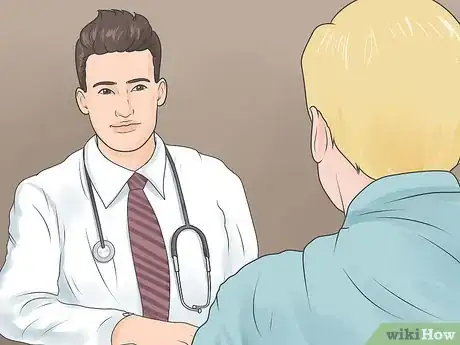
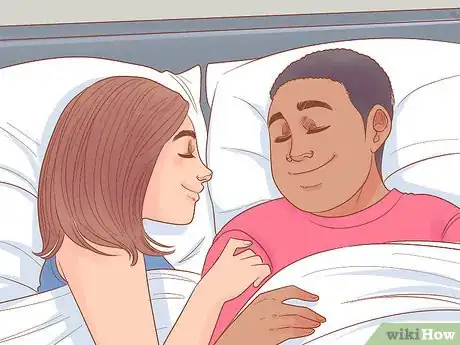






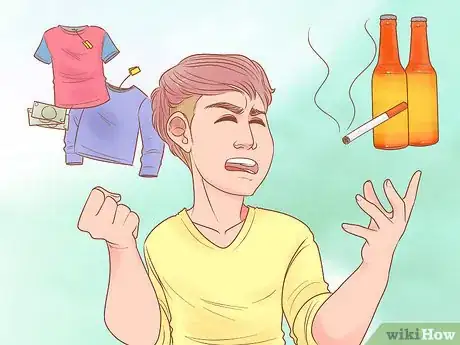
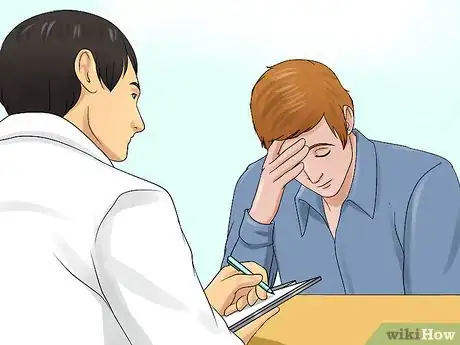


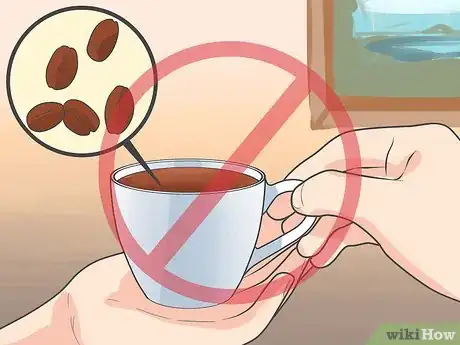
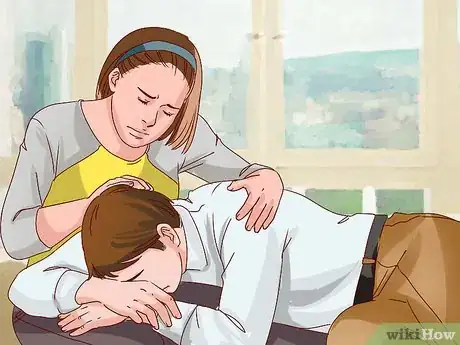

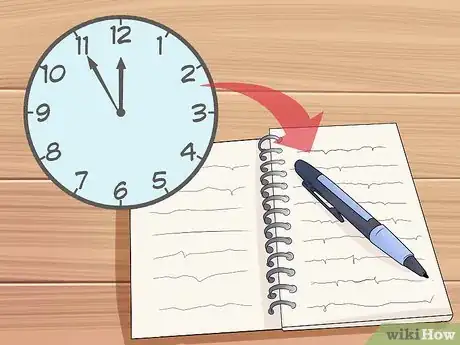


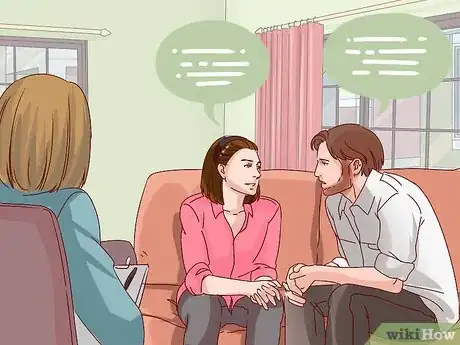


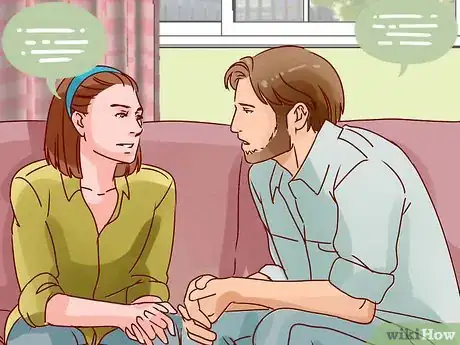







-Episode-Step-22.webp)


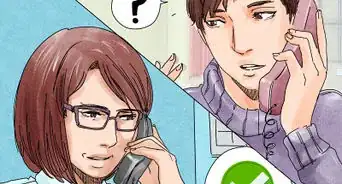
















































Medical Disclaimer
The content of this article is not intended to be a substitute for professional medical advice, examination, diagnosis, or treatment. You should always contact your doctor or other qualified healthcare professional before starting, changing, or stopping any kind of health treatment.
Read More...